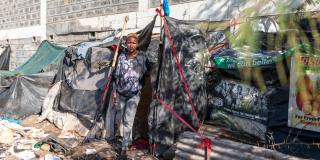
In Nairobi, Kenya, waste pickers are working every day, cleaning up their communities by picking waste and taking it to recycling centres. They work tirelessly on enormous, unsanitary dumpsites, sorting through tonnes of waste that is delivered there from the city.1
They earn little for their essential work, and face abuse from residents who see their jobs as ‘dirty.’ For women waste pickers, the obstacles are even greater – even life threatening. Can you help?
A day in the life of a waste picker in the Kibera slum
Vanessa, 24 years old, wakes up in her home after spending the night in complete darkness. She has no electricity, and no access to clean water. Sitting amongst rubbish that has spilled over from the dumpsite, Vanessa lives in a make-shift tent made of tarpaulin sheets and leftover material she has found. She lives close to the railway line, and she’s scared that the train could fall on her home at night.
Vanessa walks to the dumpsite where she starts work sorting through waste and picking out items she can take to the recycling centre in exchange for money. The waste pollutes the nearby river, and she and her fellow waste pickers work to clean this up, collecting and sorting as they go. While she is there, Vanessa might find leftover food to eat hidden amongst the waste. She doesn’t earn enough to pay for food, water, and electricity.
Your support today could help waste pickers like Vanessa earn more money for their work
Vanessa doesn’t own any gloves or protective equipment, so she has to pick up glass and sharp objects with her bare hands, meaning she cuts herself. She is at risk of contracting dangerous illnesses like HIV or typhoid. But she must keep going. She needs to earn money so she can eat today.
Exhausted from working on the dumpsite all day, Vanessa hauls the waste she’s collected to an aggregator, who weighs the bags of waste and pays what they think they are worth. The aggregator then sells the waste to a big recycling company. As a woman, Vanessa’s work is disrespected, and the big recycling centres only care about big profit margins. She is paid 15 shillings (8 pence) per kilo of waste.
Then it’s time to go back home, where again, Vanessa will sit in the dark until it is time to wake up and do the same day, all over again. Vanessa doesn’t feel safe in Kibera, especially at night. She lives alone and knows that there are thieves and traffickers around the slum.
Please will you send a gift to help women like Vanessa turn waste into wages and a better future?
Turning waste into work with VSO volunteers


With your help, a typical day for women like Vanessa can look completely different. Vanessa now attends training, where VSO volunteers are creating lasting change which is keeping her safe and helping her earn an income. She has her dignity back.
Working closely with VSO volunteers, Vanessa is learning about sorting and prioritising different types of waste so she can earn more money. Volunteers are teaching Vanessa to pick and separate plastic bottles, which recycling centres will pay more money for.
You can also help put waste pickers in touch with a buyback centre, who pays them nearly double the amount they were previously earning. The buyback centre manager, James, is a friendly face waste pickers see at the end of their working day, who pays them fairly for the waste they collect.
Volunteers are also training Vanessa on financial literacy, so she can learn to save money and put some of it aside for what she needs. Vanessa says:
The best thing about this project is now I get good money. My income is good, not bad like before.”
Donations like yours can also go towards providing waste pickers with protective equipment and clothing. Now, Vanessa can work on the dumpsites wearing gloves, boots, and overalls, knowing that she is being kept safe from diseases.
Building brighter futures
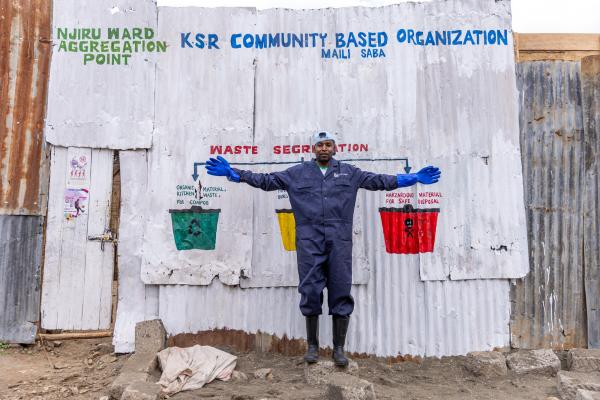
Women like Vanessa have been supported by the incredible training given by VSO volunteers, but there are so many others facing the same daily struggles.
By donating today, you could help ensure that more women like Vanessa get access to personal protective equipment and training so they can earn enough money to build a better future.
Vanessa says: “My hope and wish for the future is to come out of the dumpsite and go find a good place to live…I’ll also come back to give back to the community. I’ll teach others about how waste is wealth.”
Expert VSO volunteers are working to change the lives of 3,900 people working on Kenya's dumpsites. We are training waste pickers in skills to help improve their livelihoods and opening childcare centres so parents can keep their children safe and fed while they work and earn.
As well as supporting women waste pickers through this work, VSO’s work can address environmental and youth unemployment issues across Kenya, by formalising the waste picking industry and bringing job opportunities to young people.
These are ambitious goals that we can only achieve with support like yours. Will you help by giving a gift today?
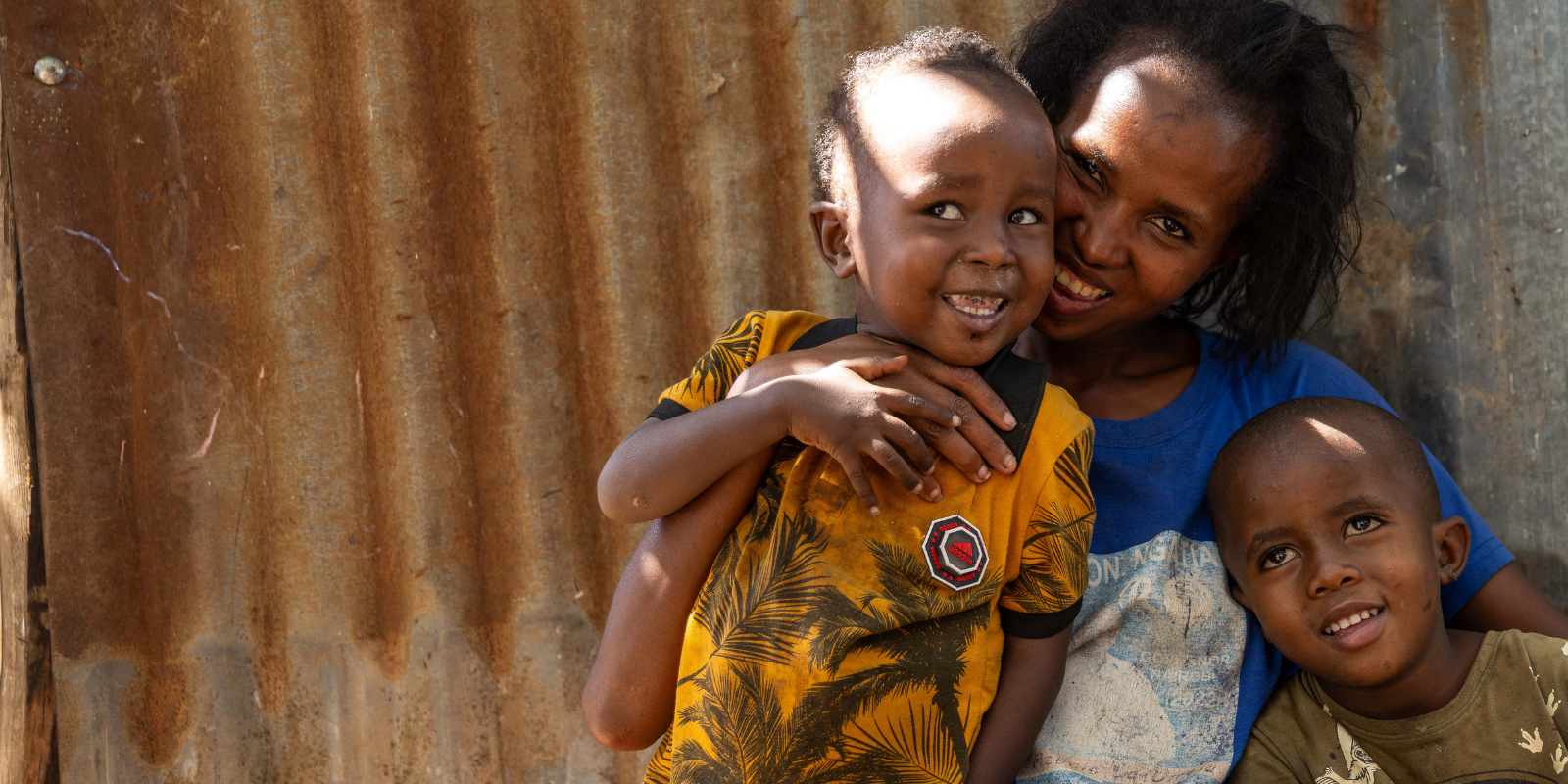
This spring, will you help ensure women’s futures aren’t thrown away?
Read more
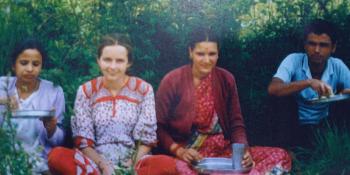
Reflections of 30 years: My time as a teacher trainer in Nepal 1985
Meet Anna Robinson, a British woman who volunteered as a VSO teacher trainer in Nepal in 1985. 30 years on from first arriving on placement, Anna has returned to Nepal. In this blog Anna shared her highlights and learnings from her experience.
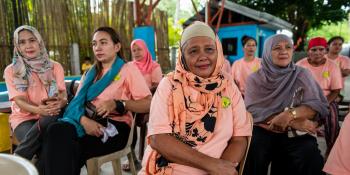
International Women's Day quiz 2025
International Women's Day, commemorated each year on the 8 March, is a global occasion celebrating the achievements of women. But how much do you know about the state of women and gender equality? Find out by taking our short quiz!
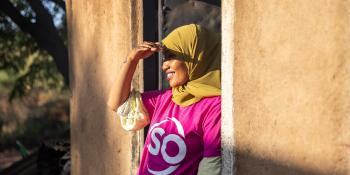
Five things women achieved this year that you might not know about
This International Women's Day, join us in celebrating the resilience of women across the globe with some female achievements you might not have heard about.
